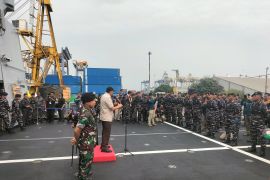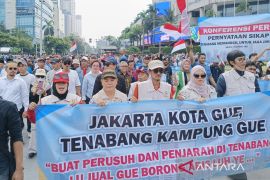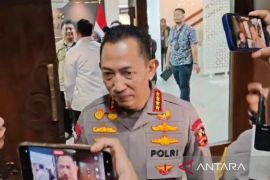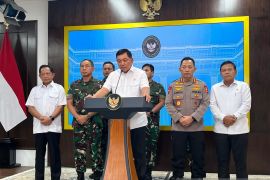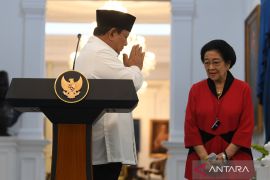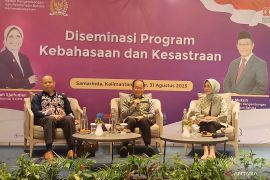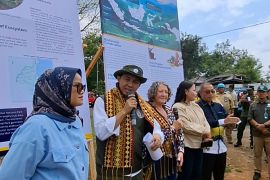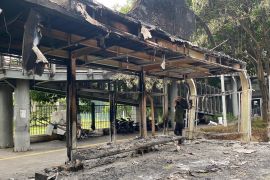After all, as per reports, certain Indonesian citizens did join the group which proclaimed itself as the Islamic State of Iraq and Syria, an organization which mainstream Islam rejects its Islam label since ISIS believes in spreading terror and cruelty to further its cause.
Therefore, Indonesia, the country with the worlds largest Muslim population, should protect its citizens from the teaching and influence of the ISIS.
The government needs to work out a program that makes people aware about the misleading struggle and radicalism of the group. Indonesian citizens, particularly Indonesian migrant workers abroad, need such education.
"Involvement of Indonesian workers, like the suspects in South Korea, necessitates that the government should work out a de-radicalization program to protect its citizens abroad," Head of the National Agency for Placement and Protection of Indonesian Workers Overseas (BNP2TKI), Nusron Wahid, said on Monday.
Moreover, according to data, there are 308 Indonesian nationals in Syria, though there is no data about the exact number of Indonesians who have joined the ISIS. However, it is believed that some have indeed joined the group.
The BNP2TKI has reported that three Indonesian migrant workers were also arrested in South Korea for their alleged links to the ISIS.
"Three Indonesian migrant workers arrested by the South Korean security officers recently are accused of having joined the ISIS terrorist network," Nusron Wahid stated.
Nusron noted that the incident would serve as a warning for the agency to further monitor the activities of migrant workers abroad.
According to Nusron, the dissemination of ideas relating to the radical movement is very aggressive and effective.
"We will undertake de-radicalization efforts," he added.
The efforts will include providing comprehensive training on inclusive religious values and dissemination of moderate Islamic values among the migrant workers, particularly individuals employed in the Middle East and Asia-Pacific regions.
The agency noted that no migrant workers had been sent to Syria since 2012. However, the agency found some Indonesians still working in the country.
"We admit that there are some Indonesians who worked for an employer who had become an ISIS activist. They then joined the radical group," Nusron revealed.
He said two of the three Indonesian migrant workers who were arrested in South Korea for their suspected links with the ISIS radical group, have been repatriated to Indonesia.
"South Korean authorities arrested three Indonesian migrant workers for alleged link to the ISIS but two of them were repatriated," Nusron Wahid said on Tuesday, adding that one of them was still being held by the South Korean authority.
Nusron said they were suspected to have been involved with the radical ISIS group after establishing communication through the social media network.
"It was indicated that they became involved through Facebook communication. The contents of their Facebook account contained the ISIS teachings and this was detected by the South Korean early warning system," he said.
Therefore, there was a possibility that the number of Indonesian migrant workers suspected of being involved with the radical group may still increase.
In the meantime, National police chief General Badrodin Haiti has asked the immigration office to deny entry to citizens involved with ISIS activities in Syria so that they are not able to return home.
"I have made this request to the immigration office, asking them to deny entry to such persons. We made the request in anticipation of their potential to disrupt security and public order in Indonesia," he said here on Saturday (Jan 15).
According to police data, he said as of now there are 308 Indonesian nationals in Syria, although not all of them have joined the radical ISIS group.
"Not all of them are involved with the ISIS. Some are only staying temporarily there," he said.
BNP2TKI head Nusron Wahid noted that of the total 600 Indonesians who were deported from Syria last year, not more than 10 people were influenced by the radical movement.
"However, we can still change their thought to reinstate their moderate religious values," Nusron added.
Nusron has also earlier said that many Indonesian migrant workers in Syria work for ISIS sympathizers and activists. However, this was denied by the Indonesian embassy in Damascus.
"Based on the data gathered by the Indonesian embassy in Damascus, no female Indonesian migrant worker in Syria has been found working for ISIS sympathizers or activists," head of the embassys information and socio-cultural function, AM Sidqi, said in a press statement released on Friday (Jan 22).
He said Indonesia has no longer been sending any migrant workers to Syria since 2012.
The Indonesian government imposed a moratorium on workers going to Syria with effect from September 5, 2012.
The moratorium was strengthened by the decision of the Manpower and Transmigration Minister, numbered 260 of 2015, which bans Indonesian migrant workers from working for individual service users in the Middle East.
"Since the moratorium was imposed in 2011, Indonesian migrant workers sent to Syria have been declared as victims of human trafficking," he said.
Sidqi asked the BNP2TKI to send its data regarding alleged involvement of 10 Indonesian migrant workers with the ISIS to the embassy for further investigation.
Meanwhile, Minister of Justice and Human Rights, Yasonna Laoly said on Friday (Jan 22) that revoked the passports of Indonesian citizens proved to be involving the ISIS activities.
"We would revoke the passports of Indonesian citizens who are clearly indulging in activities related to terrorism abroad or are affiliated with the banned terrorists groups," Minister Yasonna Laoly stated.
The proposal to revise Law Number 15 of 2003 on the Eradication of Terrorism includes a clause for revocation of passports of those Indonesian citizens who are proved to be affiliated to terror groups, including the ISIS.
The provision to revoke passport would also apply to any Indonesians illegally joining war training in other countries.
"If they are joining such training without required permission from the Indonesian army or the government, we will ensure that their passports are revoked," Laoly stated.
Based on Law Number 12 of 2006 on the Citizenship of the Republic of Indonesia, citizenship could be revoked if someone is starting a fight against other countries.(*)
Reporter: Andi Abdussalam
Editor: Heru Purwanto
Copyright © ANTARA 2016

